Outgoing TfL chief: Croydon tram crash was 'worst day in 30-year career'
- Published
- comments
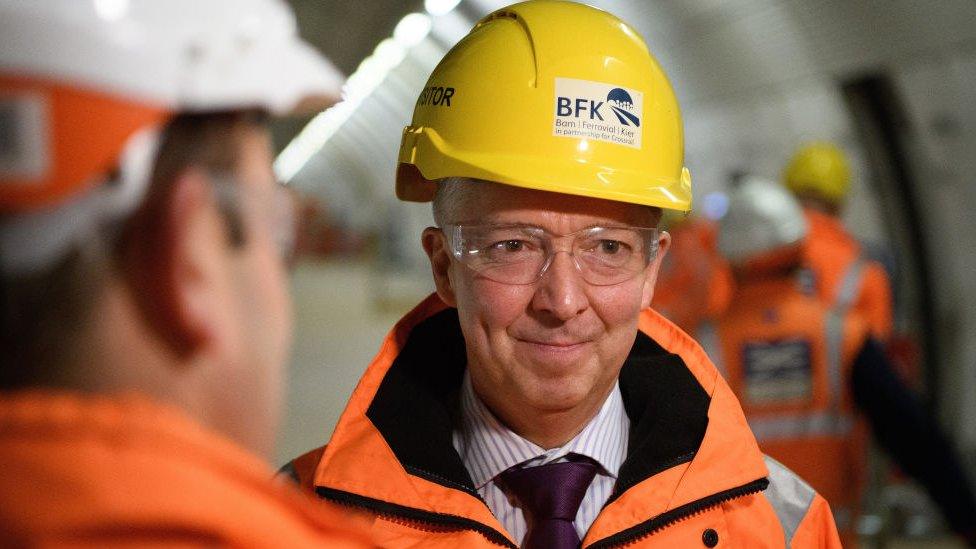
Mike Brown was managing director of London Underground and Rail before taking over as Transport for London Commissioner
The transport commissioner job is of course the most important role for keeping the capital moving.
Mike Brown took over the position in 2015, promising to modernise and upgrade the Tube and deliver both Crossrail and Crossrail 2, external.
But after five years Crossrail still won't be fully operational for another 24-months, according to the project's developers.
I haven't met a commissioner yet who isn't extremely passionate about Transport for London (TfL).
Mr Brown's predecessor Sir Peter Hendy had a straight-talking image.
The media didn't see quite as much of Mr Brown - he said he was too busy getting on with his job.
He is stepping down after five years in charge to make way for Andy Byford - who was previously president and chief executive officer of New York City Transit Authority.
Mr Brown gave me a rare interview as he moves to his new role overseeing the renovation of the Houses of Parliament.
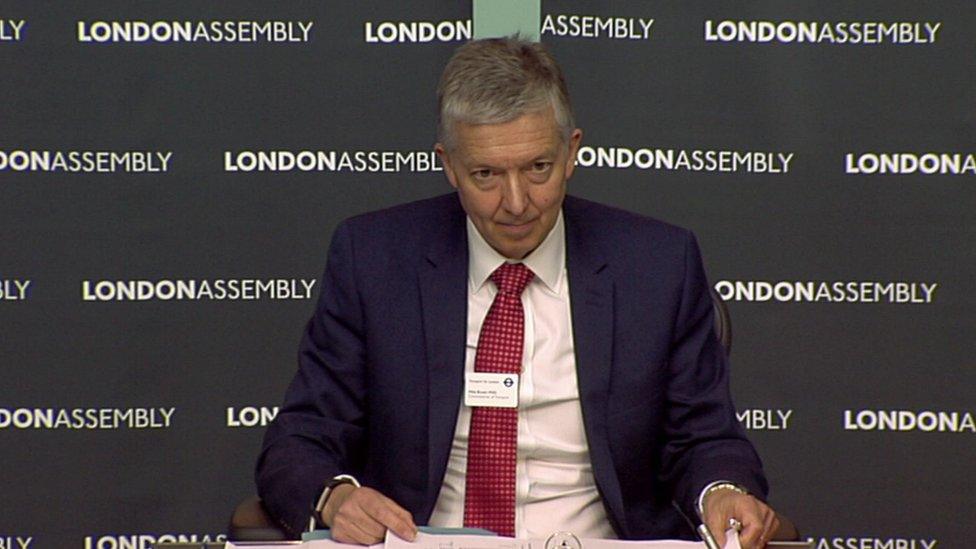
Mike Brown was repeatedly questioned by the London Assembly over delays to Crossrail
What will your tenure will be remembered for?
"One of the things I'm most pleased about is how we really turned around TfL finance away from one that required and received a massive operating £800m subsidy from the government every year.
Before the pandemic we were on track to make a surplus by next year.
The other thing that has changed over the last few years is the mood shift over the city and politics around air quality. We've seen a real appetite, I think, for fresh clean air and a carbon zero city in the future.
I think in the last few weeks people again recognise how important transport workers are during a crisis."
There were calls for your resignation over the delays to Crossrail. Did you ever consider resigning?
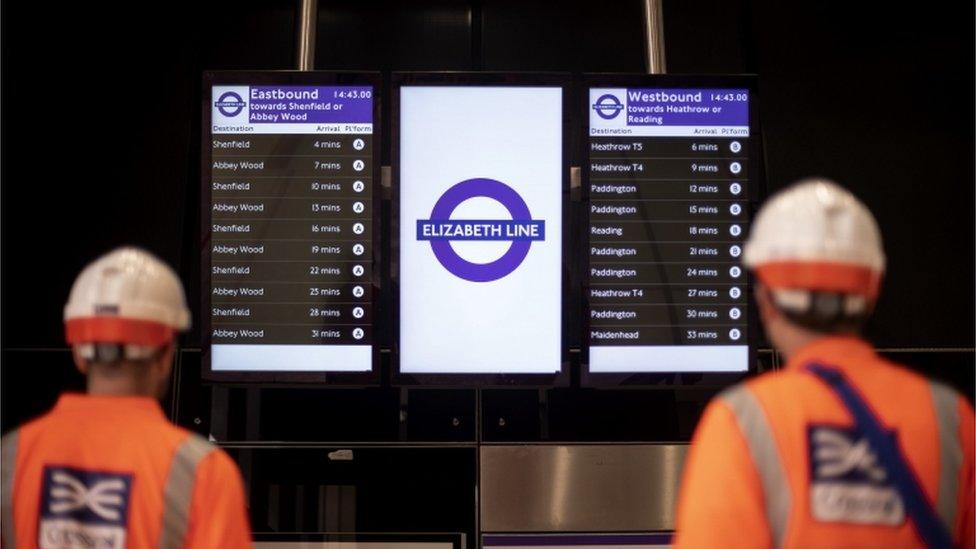
Software testing has begun again on the Crossrail system following the coronavirus lockdown
"I never considered resigning because Crossrail was set up by previous governments to an independent body at arms-length from TfL - it had its own board and oversight
That board was reporting that the project was pretty much on track to be delivered and they could still deliver the opening date.
Clearly as it turned out that was nonsense.
You could only probe so far when you're not allowed into the room - you're only allowed to see through a crack in the doorway. Unfortunately that is all we were allowed to do at that time.
I do really regret that Crossrail ended up where it did.
It is a massive project. It will, within minutes of opening, transform the perception of the whole transport network in London.
You add the whole of the Berlin metro capacity to London and the South East in one fell swoop. That's phenomenal.
That will, I think, will trigger appetite for even further transport projects going forward.
Notwithstanding clearly the blip we have now with people's opinion of public transport because of Covid-19."
Do you regret you weren't looking at Crossrail in as much detail?
"Well we were looking at the reports we were given by the board and executive team at Crossrail.
But all of them were reporting on-track performance.
Me, the current mayor, the previous mayor were all getting those updates.
At no time did you get anything other than a sense of confidence they would be able to resolved their problems in time.
To be fair to Crossrail's management they had solved a huge number of problems.
From the challenges of tunnelling through central London, or finding mains electric being located where they shouldn't be in early configurations of station designs, they overcame some great engineering challenges. Unfortunately they just ran out of runway."
Do you take responsibility for the garden bridge?
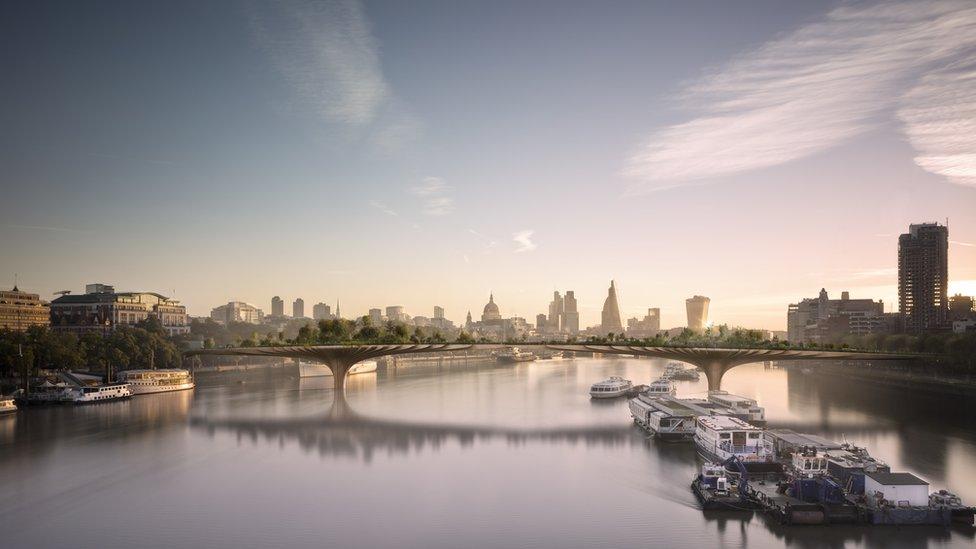
The failed garden bridge project cost £53m
"The garden bridge was a project of the previous mayor. We were directed to help out in whatever way we could.
When I became commissioner we applied audit after audit but most of the work had already been done around the procurement process.
Of course every single penny of public money that was spent on a project that doesn't deliver, is of huge regret to me.
Could it have been a good and useful scheme? I guess it could have been.
Was it top of my agenda of things I was all over every day? Of course not.
This was a project that was something outside of a core transport provision and my job is core transport provision."
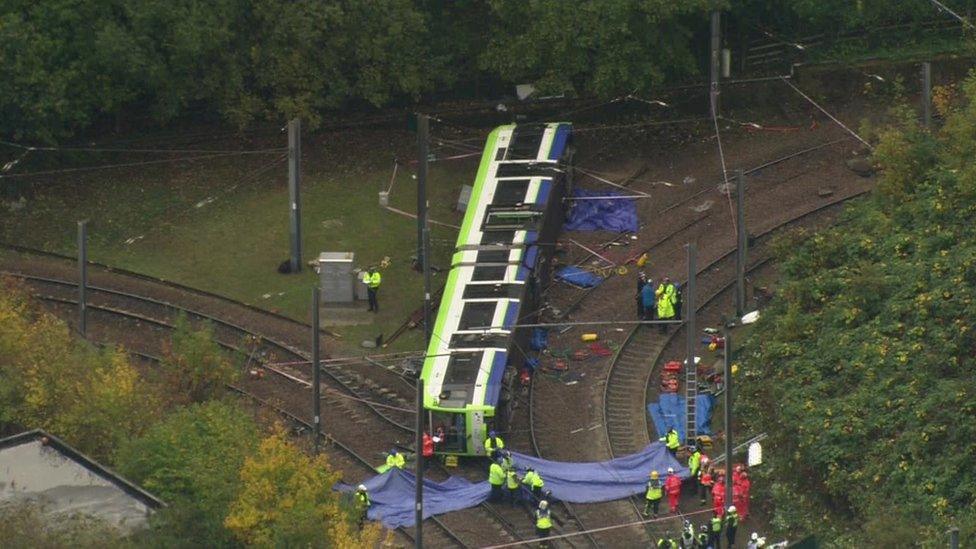
Seven people were killed and 61 were injured when the tram overturned in Croydon in 2016
After the Croydon tram crash there were lots of accusation about a slack safety structure within TfL. How do you respond to that?
"Never a day goes by when I don't think of the people who lost their lives at Sandilands, their families, their loved ones and everybody else who was injured in that terrible accident.
Of all my career of 30 years in transport that was the worst day by far. Even worse than 7/7 because of the cause of it.
Our focus on safety is absolutely at the top of everything we do.
I think if anyone had envisaged a high speed derailment of a tram as being anywhere close to the top of their risk register in advance of Sandilands, people would have thought they were on another planet.
Of course the benefit of perfect hindsight means, that the sort of systems that have never been applied to tram networks across the world, like automatic speed control monitoring, all of those things were re-scrutinised and we've learnt from them."
Has the fares freeze been good or bad for TfL?
"I'm really proud that the transport network in London has become more accessible for people.
I think it's an absolute right for people in a great big diverse city like this to be able to afford to use the public transport system.
There's been lots of talk of the fares freeze in the funding settlement we did recently with the government. That the fares freeze would have somehow bailed it out.
That is nonsense. The fares freeze would have given us four or five weeks additional.
The fares freeze was not something that left our finances in ruin, quite the opposite."
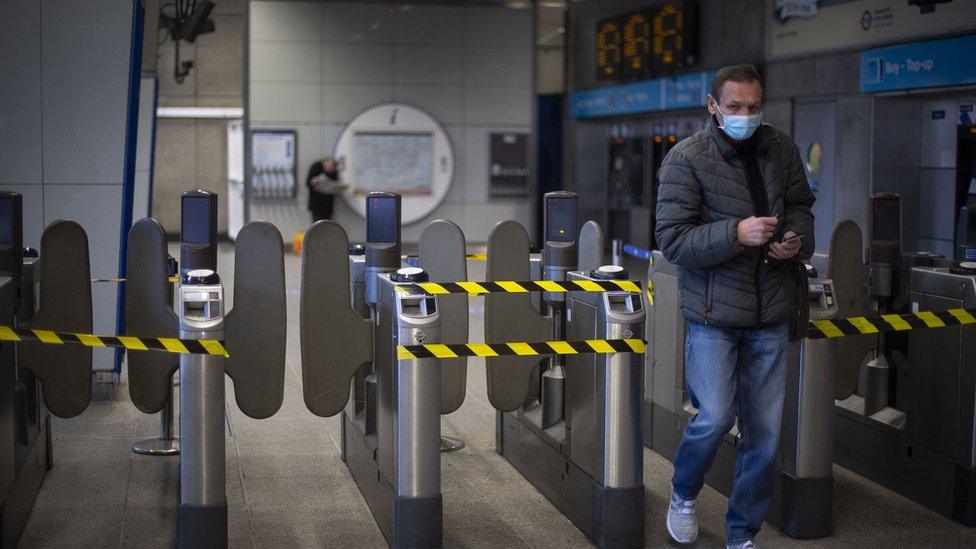
In 2019-20 Transport for London earned £4.9bn from fares -making up 47% of the transport authority's income
Following the lockdown will people get back on packed Tubes? How do you see the future?
"I think it's going to be a very gradual journey.
I don't think we're going to see some overnight engagement of people onto the transport network.
I was out and about at the weekend, I have never seen so many cyclists. That's fantastic.
That greener start to the transport recovery is a really important part of this.
It's going to take a while for people to be confident to come back on Tube trains and bus services.
But people are incredibly resilient.
I remember the bombings of 7/7. People said to me it'll never be the same again but within a few short weeks, or a few months, it started to get back to normal again."
How is TfL's financial position following the government bailout?
"Well I don't think the government will take over more of Transport for London.
They've seen our response to coronavirus and they've seen how well managed the operations are.
Our capital programmes and our efficiency stand the test versus anybody else in the public sector. So I say bring on the scrutiny I welcome it.
I think times will be tough.
There's further changes to be made. I'll be suggesting some thoughts to my successor about what he might want to have a look at to help streamline the service."
Will your next job be as politically challenging?
"Before lockdown I had a tour of the unseen bits of the Palace of Westminster which are remarkably beautiful, actually, given their age.
But when you go down and crawl in the basements and you see the ventilation systems, and you see the fire systems, and you see the cabling and the cages of electrical wires that no one knows what they're really there for, and you realise this is something that has to have work done to it no matter what.
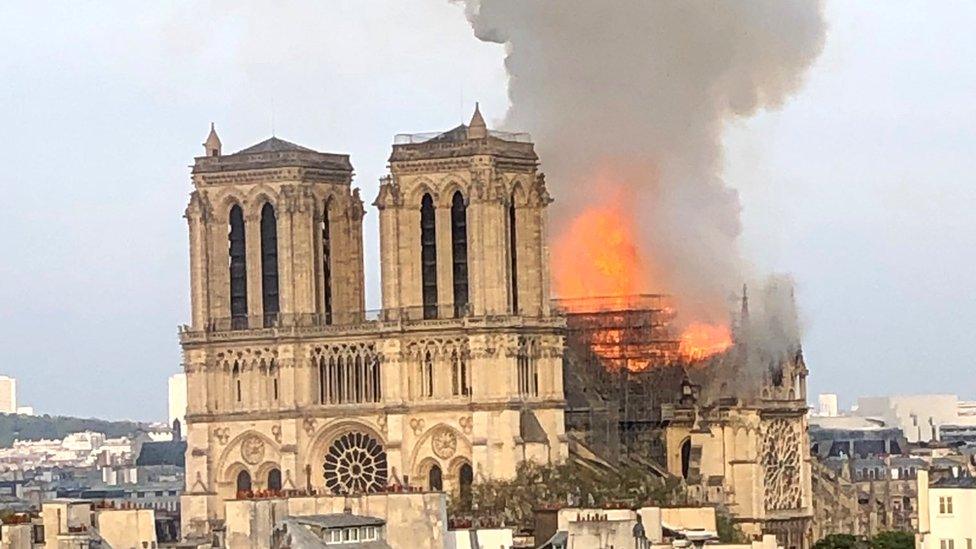
A fire tore through Notre-Dame last April, destroying its roof and spire
I think the terrible fire we saw in Norte-Dame in Paris was a real wake up call for these old buildings.
Of course you've got to do it with value for money, you've got to do it with the tax payers in mind.
It shouldn't been seen as somehow political - MPs feathering their own nest and I don't believe it is that.
This is a national palace, this is a national facility that needs to be preserved for generations to come as part of our democratic system."
Out of the frying pan into the fire?
"Something like that!"
- Published14 May 2020
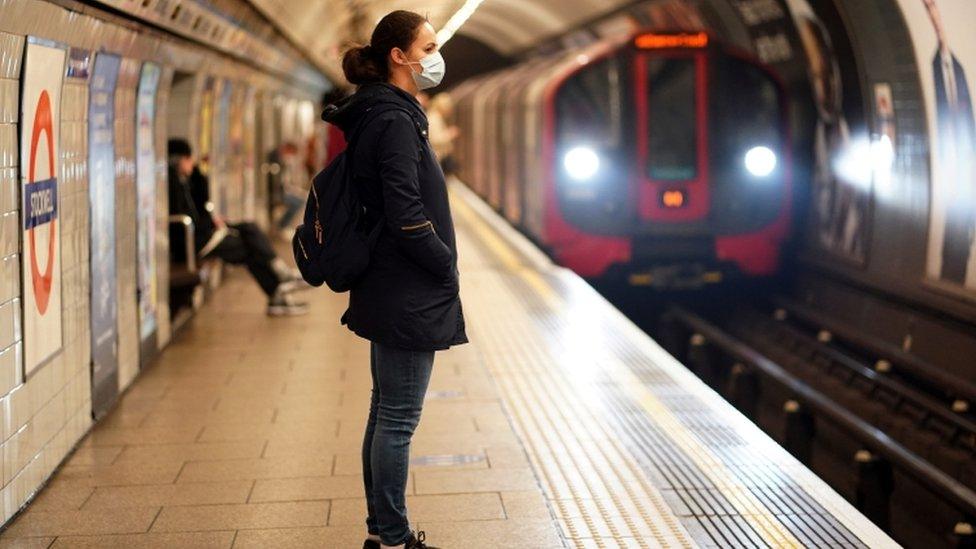
- Published22 October 2019
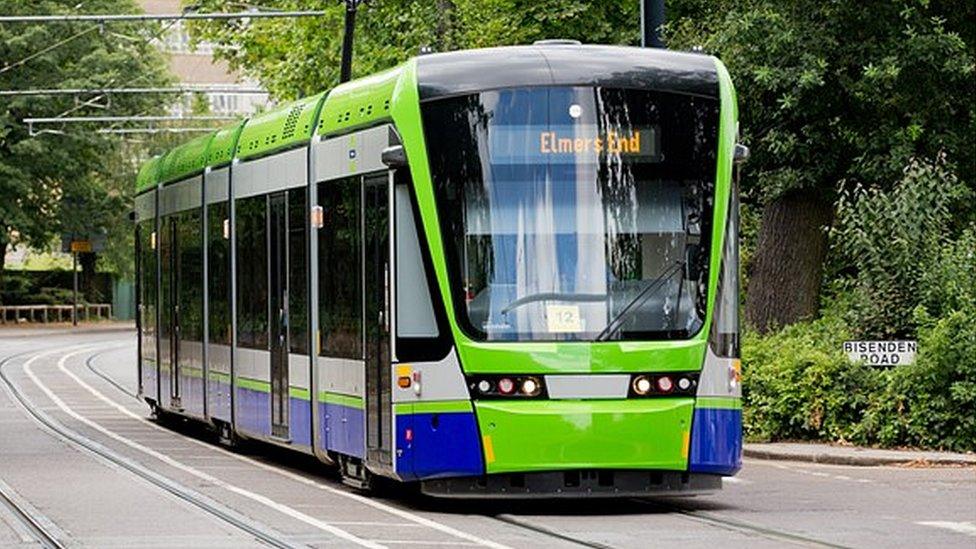
- Published13 February 2019

- Published25 April 2019

- Published8 April 2018
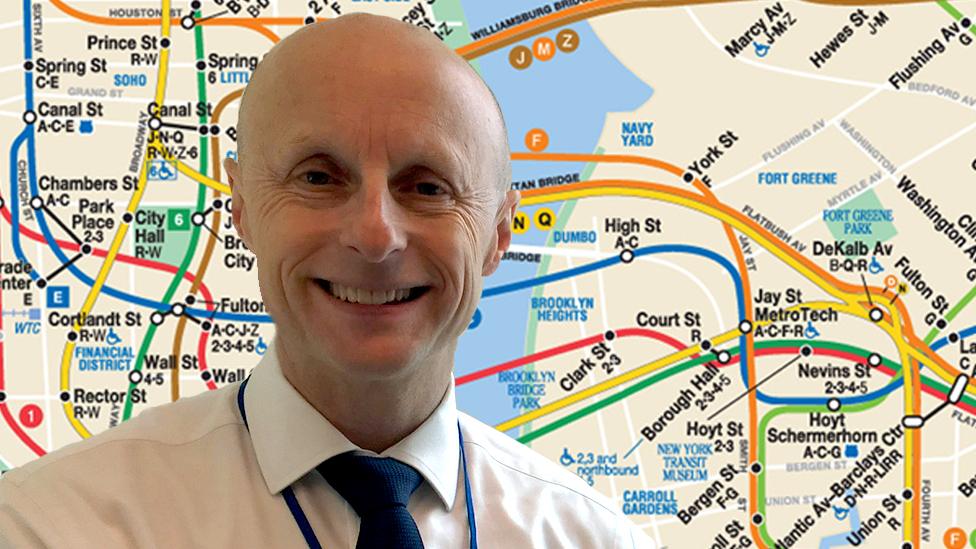
- Published10 June 2020
